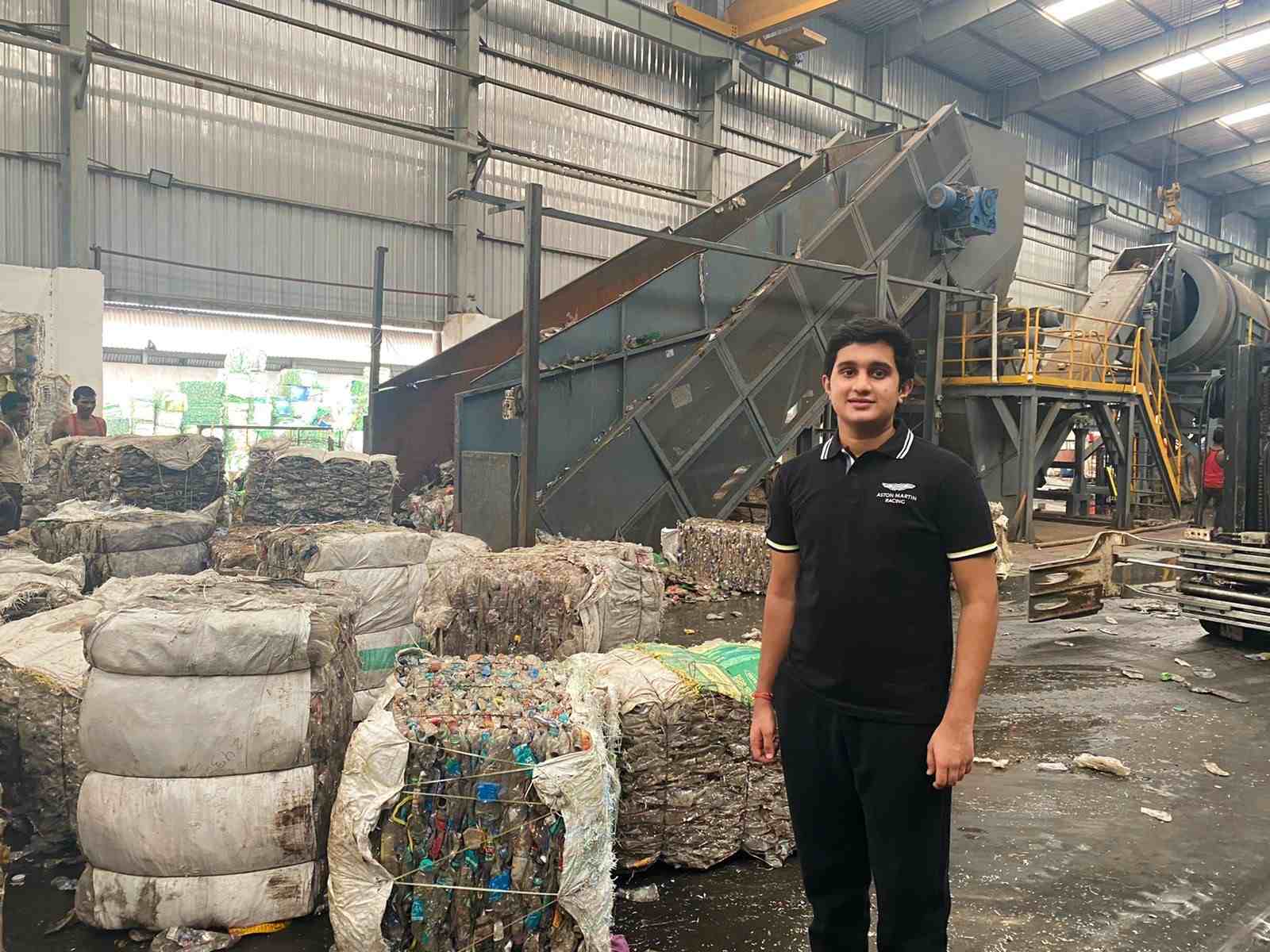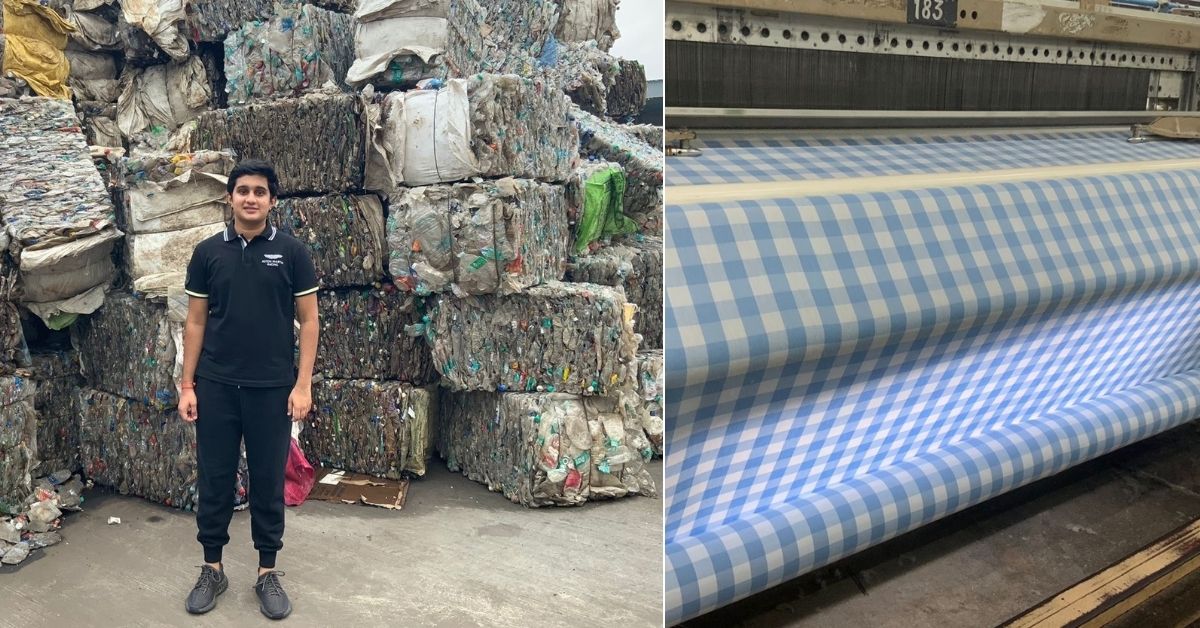In 2019, reports estimated that over 3.3 million metric tonnes of plastic wound up in landfills across India. However, to reduce the burden on the environment, Aditya Banger (17) a resident of Bhilwara, Rajasthan has started recycling plastic bottles, wrappers and covers to make fabric.
“The process takes one or two days but the fabric produced is stronger than regular cotton and is more durable,” says Aditya, a Class 12 student of Mayo College, Rajasthan, in an interview with The Better India.
His company, Trash to Treasure, was launched in January 2021 and every day they recycle up to 10 tonnes of plastic to make fabric.
Innovative textile
Two years ago, Aditya—who comes from a textile manufacturing family—went on a business trip to China. He was travelling with his uncle, the owner of Kanchan India Limited, to see new manufacturing techniques for producing fabric.
“That is when I came across a unit that was converting large quantities of plastic waste into fabric. It not only reduces waste going into the landfills but also produces good quality material and creates employment locally,” says Aditya.
Once they returned Aditya, who was in Class 10 at the time, pitched an idea to his family about starting a business of producing fabric from plastic. His uncle and parents agreed and supported his venture. By collaborating with a foreign company, Aditya had a manufacturing unit set up in Bhilwara.
“The project was funded by the parent company, Kanchan India Limited, for whom the fabric will be made,” says Aditya.

Recycling 10 Tonnes of Plastic
By January 2021 when the lockdowns were eased, Aditya began sourcing plastic waste from all over the country. He connected with local waste collection centres and purchased PET grade plastic for Rs 40/ kilogram.
Once the waste reaches the unit, it is thoroughly cleaned, the labels are removed and allowed to dry. They are then chopped into fine flakes and melted to remove toxic chemicals. The melted plastic, also known as the plastic filament when cooled down becomes the fibre.
“The fibre is spun into yarn and mixed along with cotton to make fabric. Currently, the fabric is made by the parent company, and then sold to other companies who will make clothes using the same,” says Aditya.
To date, Aditya claims to have recycled 10 tonnes of plastic every day. However, purchasing the same is proving to be expensive for his business. Now, he requests plastic waste directly from residents who are collecting them for recycling.
“The plastic needs to be PET grade and does not need to be washed or cleaned. It can be sent to our unit as is and we will clean it before using it for yarn,” says Aditya.
If you wish to deposit PET grade plastic waste to help Trash to Treasure, be sure to connect with Aditya and send the waste to A 110 Shastri Nagar, Bhilwars, 311001, Rajasthan or check out their Instagram page.
Edited by Yoshita Rao
If you found our stories insightful, informative, or even just enjoyable, we invite you to consider making a voluntary payment to support the work we do at The Better India. Your contribution helps us continue producing quality content that educates, inspires, and drives positive change.
Choose one of the payment options below for your contribution-
By paying for the stories you value, you directly contribute to sustaining our efforts focused on making a difference in the world. Together, let's ensure that impactful stories continue to be told and shared, enriching lives and communities alike.
Thank you for your support. Here are some frequently asked questions you might find helpful to know why you are contributing?

